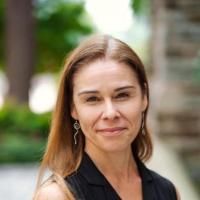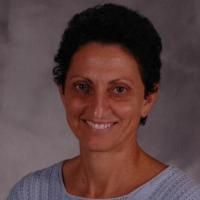Rapid Transition to Telehealth Group Exercise and Functional Assessments in Response to COVID-19.
Date
2020-01
Journal Title
Journal ISSN
Volume Title
Repository Usage Stats
views
downloads
Citation Stats
Attention Stats
Abstract
Exercise is critical for health maintenance in late life. The COVID-19 shelter in place and social distancing orders resulted in wide-scale interruptions of exercise therapies, placing older adults at risk for the consequences of decreased mobilization. The purpose of this paper is to describe rapid transition of the Gerofit facility-based group exercise program to telehealth delivery. This Gerofit-to-Home (GTH) program continued with group-based synchronous exercise classes that ranged from 1 to 24 Veterans per class and 1 to 9 classes offered per week in the different locations. Three hundred and eight of 1149 (27%) Veterans active in the Gerofit facility-based programs made the transition to the telehealth delivered classes. Participants' physical performance testing continued remotely as scheduled with comparisons between most recent facility-based and remote testing suggesting that participants retained physical function. Detailed protocols for remote physical performance testing and sample exercise routines are described. Translation to remote delivery of exercise programs for older adults could mitigate negative health effects.
Type
Department
Description
Provenance
Subjects
Citation
Permalink
Published Version (Please cite this version)
Publication Info
Jennings, Stephen C, Kenneth M Manning, Janet Prvu Bettger, Katherine M Hall, Megan Pearson, Catalin Mateas, Brandon C Briggs, Krisann K Oursler, et al. (2020). Rapid Transition to Telehealth Group Exercise and Functional Assessments in Response to COVID-19. Gerontology & geriatric medicine, 6. p. 2333721420980313. 10.1177/2333721420980313 Retrieved from https://hdl.handle.net/10161/23677.
This is constructed from limited available data and may be imprecise. To cite this article, please review & use the official citation provided by the journal.
Collections
Scholars@Duke

Janet Prvu Bettger
Dr. Bettger’s research is dedicated to establishing real world evidence aimed to improve health care quality and policies that reduce the burden of disease and disability. As a health services researcher and implementation scientist, her research extends from observational studies to randomized and pragmatic trials. She was the Founding Director of Duke Roybal Center for Translational Research in the Behavioral and Social Sciences of Aging and the Founding Director of Undergraduate Initiatives for the Duke-Margolis Center for Health Policy. She has examined implementation of several integrated care models to improve the transition home from the hospital (VERITAS with virtual exercise therapy after knee replacement, COMPASS for stroke, RECOVER for stroke in rural China, and coordinated care for trauma patients in Tanzania). She also studies implementation of community-based models of care that can prevent functional decline. These include the CTSA-funded IMPAC RCT of integrating physical therapists into primary care as first line providers to address musculoskeletal pain, the VA-funded Gerofit program of structured and progressive in-person and virtual group exercise for older Veterans, MRC-funded SINEMA RCT of a village-based model supporting stroke recovery in China, and a NIDCD study comparing three primary care protocols for older adult hearing healthcare.
In addition to the evidence translation studies in China (RECOVER and SINEMA) and Tanzania, she has partnered with experts in Singapore on stroke systems research, and worked on large cluster randomized trials to improve evidence-based care in Brazil, Peru, Argentina (BRIDGE-Stroke) and China (CNSR and Golden Bridge). To address health locally, she was the faculty sponsor to launch Exercise is Medicine at Duke and Help Desk, a student volunteer community resource navigator model addressing social determinants of health.
Dr. Bettger received her BA from the University of Western Ontario, Canada and her MS from the University of Wisconsin–LaCrosse where she studied community reintegration for stroke and brain-injured patients transitioning from hospital to home. Her doctoral training in Rehabilitation Sciences, completed at Boston University, concluded with an investigation of patterns of functional recovery and factors affecting outcomes in patients transitioning home following acute rehabilitation. While working on her doctorate, she also worked in state government as the director of the Paul Coverdell National Acute Stroke Registry. Dr. Bettger completed post-doctoral training at the University of Pennsylvania with a NIH NRSA research fellowship in neurorehabilitation, a research fellowship at the NewCourtland Center for Transitions and Health, and a Switzer Fellowship funded by the National Institute on Disability and Rehabilitation Research to study the role of the environment on functional outcomes. She completed additional research training at Duke as a mentored scholar in comparative effectiveness research funded by AHRQ. As of July 2022, she is an Adjunct Associate Professor for Duke's Department of Orthopaedics and has transitioned out of her role as Co-Director of the Duke Clinical and Translational Institute (CTSA) Pilots Accelerator Core working with NCCU. She is affiliate faculty with Duke's Science and Society, Duke-Margolis Center for Health Policy, the Duke Clinical Research Institute (DCRI) and Duke Global Health Institute (DGHI), is a Senior Fellow of the Duke Center for the Study of Aging and Human Development, and is a Fellow of the American Heart Association.

Miriam C. Morey
The general focus of Dr. Morey's work is exercise and aging. All of her research examines how physical activity, exercise training, or physical fitness influence the physical functioning and/or pyschosocial quality of life of older adults. She directs a supervised hospital-based program for older adults, which is used to examine longitudinally the effects of exercise training on the musculoskeletal, articular, and cardiorespiratory systems. Furthermore, she has a number of studies that examine how system-wide impairments serve as preclinical indicators of disability and overall decline in the quality of life of older adults. Ongoing studies examine the role of exercise training in attenuation or reversal of functional decline and examination of the effectivenes of different methods of physical activity counseling for home-based exercise.
Dr. Morey's research evolves directly from three sources: (1) primary analyses of clinical trials regarding the impact of exercise on a specific outcome, (2) longitudinal analyses of participants in ongoing clinical exercise programs, and (3) secondary analyses of clinical trials which involve exercise or physical activity.
Although physical activity and exercise are the interventions of interest in all of these studies, the outcomes of interest vary considerably. Within the broad domain of aging, Dr. Morey has examined the impact of exercise on physical performance, well-being, sleep quality, disability, and functional limitations. More recently, Dr. Morey has several studies focusing on the effect of tailored telephone physical activity counseling to improve function in elders. Specific studies are targeted to newly diagnosed cancer survivors, long-term cancer survivors, and frail elders in geriatric and primary care settings.
Dr. Morey's expertise is in the area of exercise physiology and aging. She has specific knowledge in age-related changes in cardiorespiratory functioning, the effects of habitual exercise (longitudinal) on performance, and exercise programming for older adults.
Key Words: Exercise, maximal oxygen uptake, cardiorespiratory fitness, aging, disability,
functional limitations, longitudinal
Unless otherwise indicated, scholarly articles published by Duke faculty members are made available here with a CC-BY-NC (Creative Commons Attribution Non-Commercial) license, as enabled by the Duke Open Access Policy. If you wish to use the materials in ways not already permitted under CC-BY-NC, please consult the copyright owner. Other materials are made available here through the author’s grant of a non-exclusive license to make their work openly accessible.
